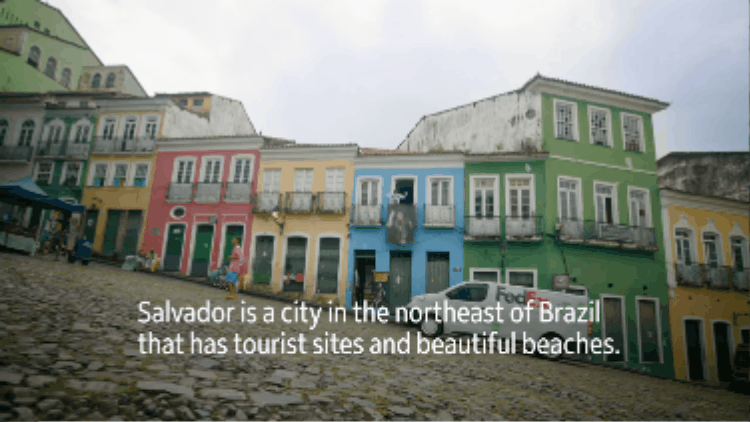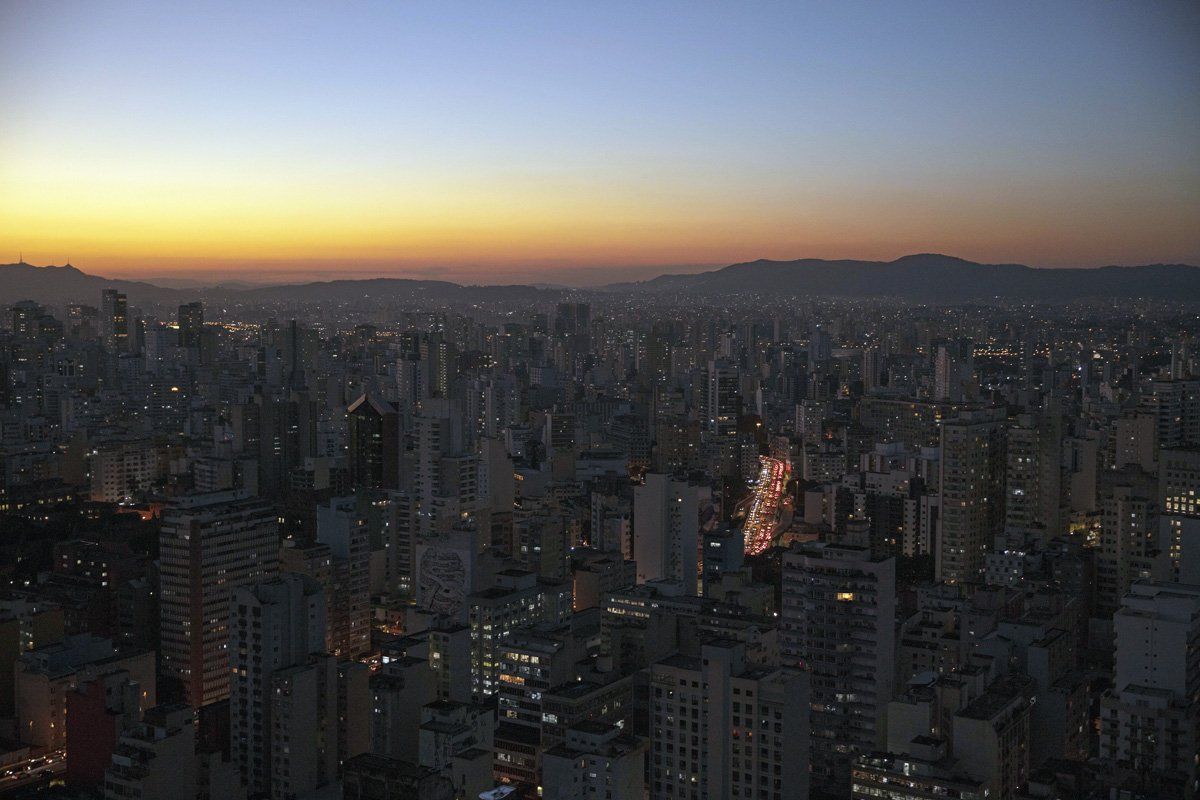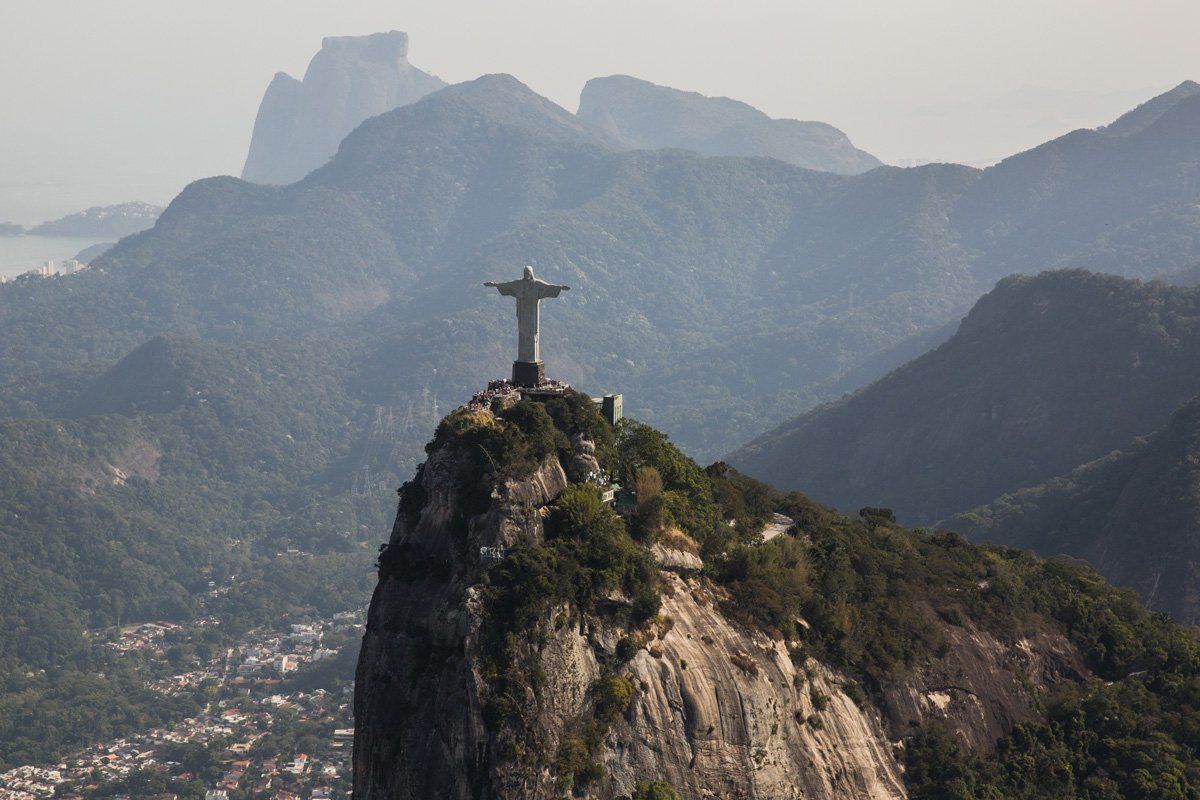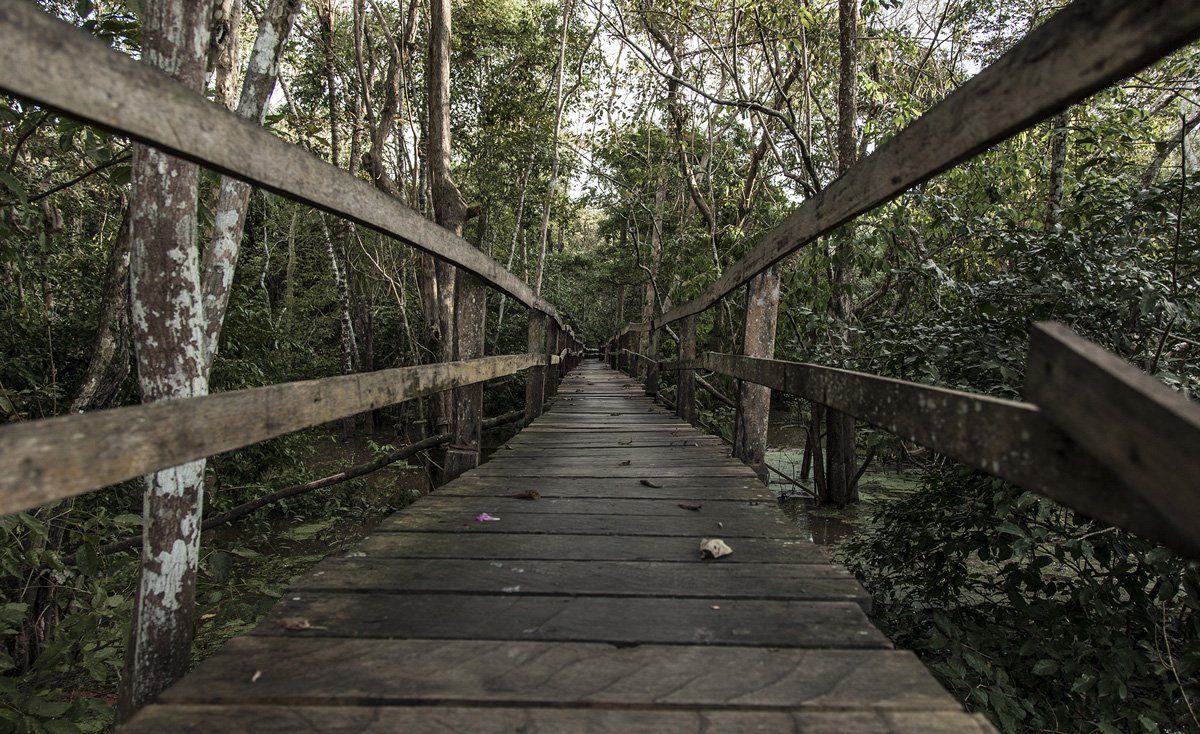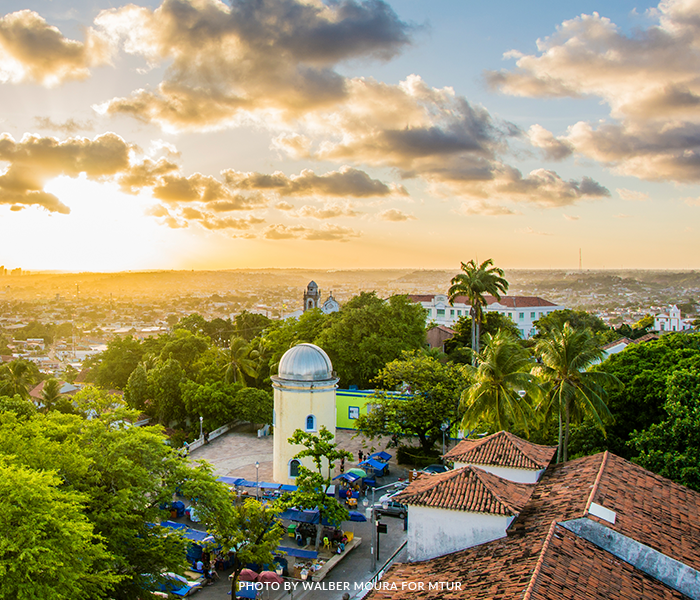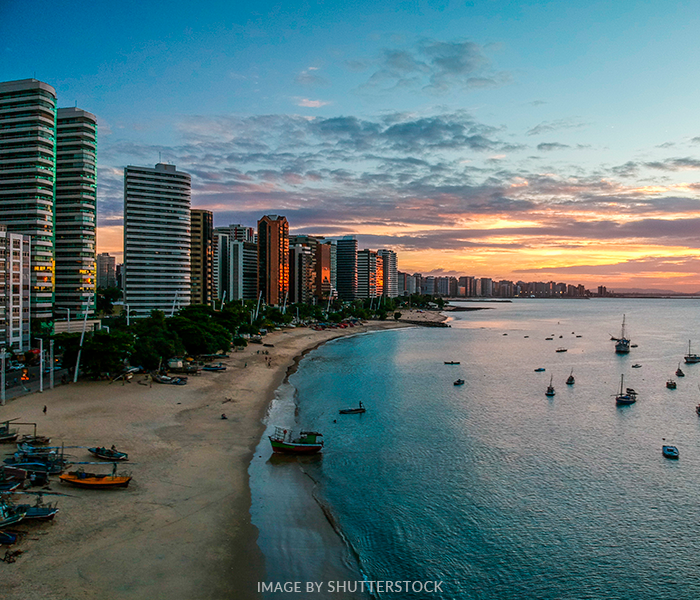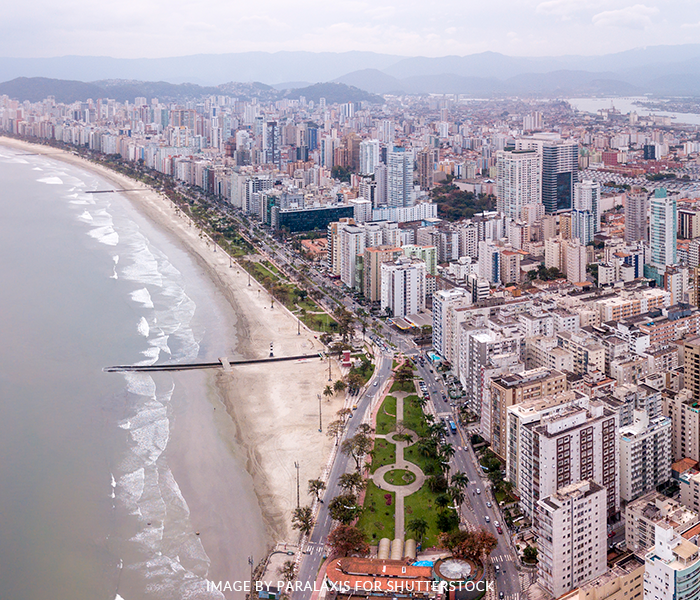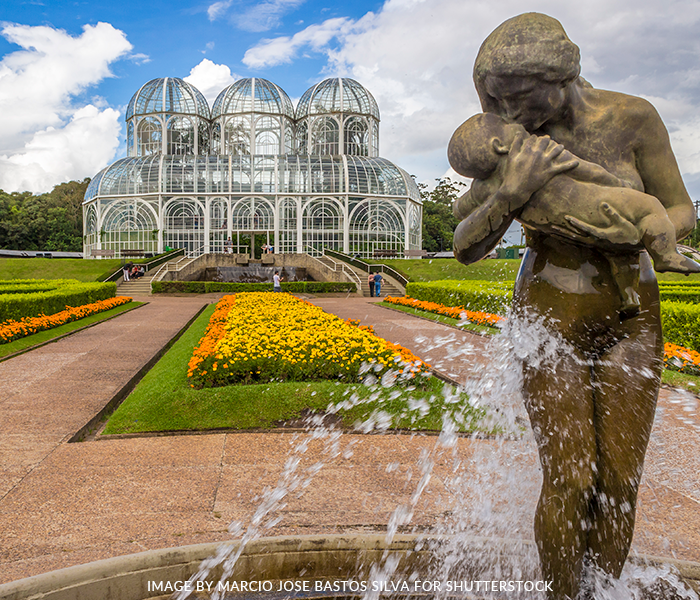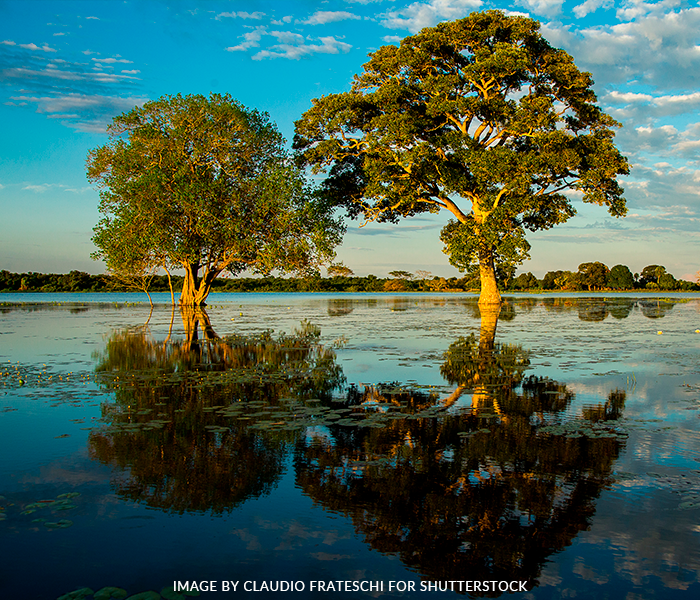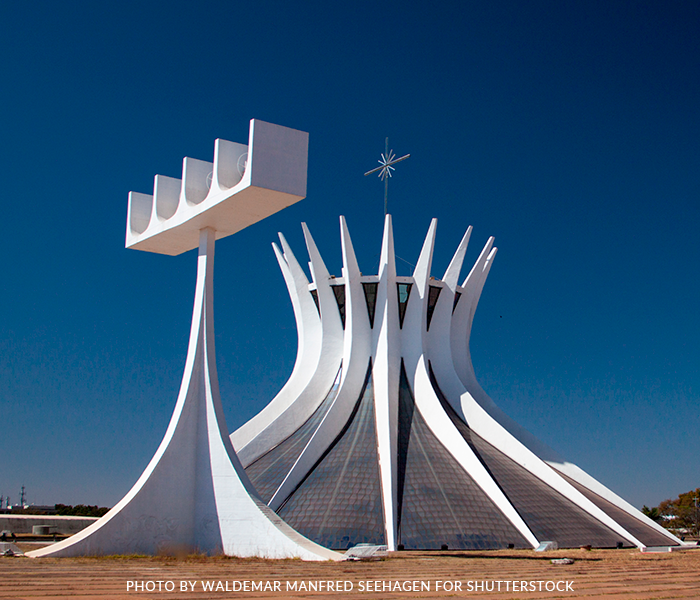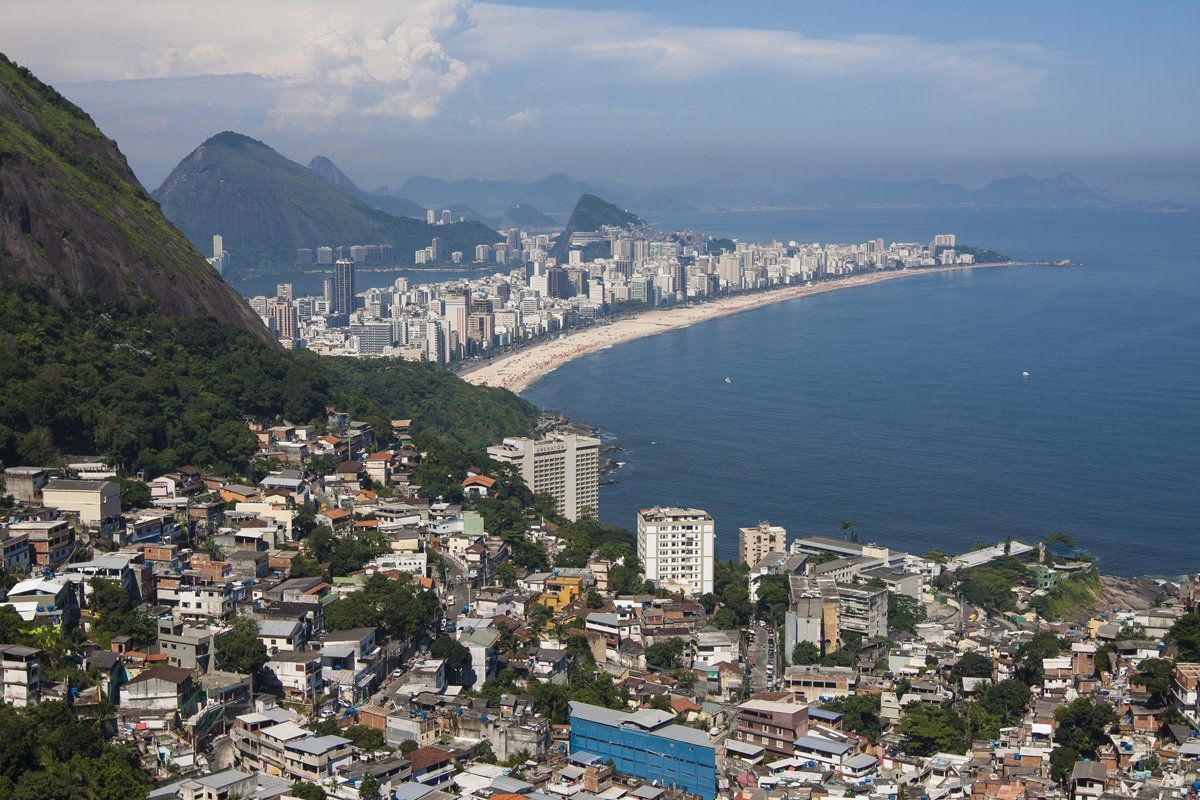Filming in Salvador
In Salvador, the first capital of Brazil and a place filled with history and culture, you’ll encounter a myriad of local traditions and festivities.

Salvador was the first capital of Brazil, from 1549 until 1763, making it one of the oldest cities in the country.
Founded by the Portuguese and heavily influenced by both colonizers and the arrival of African slaves, , Salvador has a unique dual culture. People come from all over the world every year to participate in local festivities and to visit the many historical buildings around town.
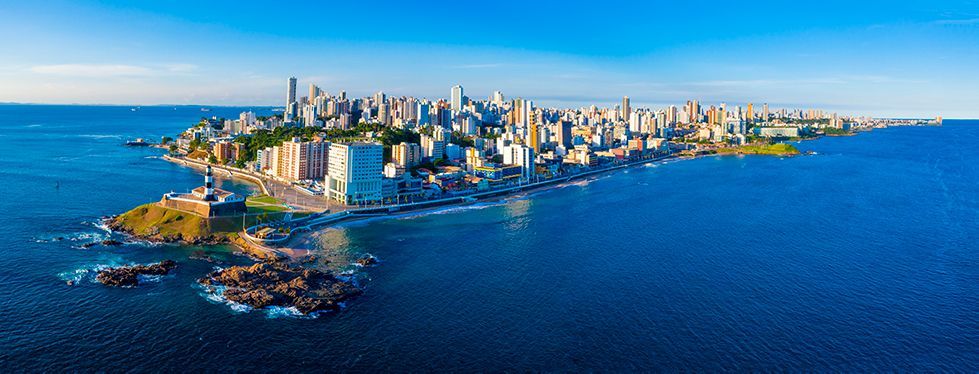
Photo by Cassiohabib for Shutterstock
The city has also been the backdrop of many acclaimed productions that portray the local reality and traditions, such as Ó Pai, Ó (2007); Cidade Baixa (2005); and Dona Flor e Seus Dois Maridos (1976), which tells the story of a woman whose husband dies from excessive partying and finds a way to bring his spirit back after she remarries. This last movie was such a huge success that an American version was made in 1982 (Kiss Me Goodbye).
Salvador has also been part of international productions, such as an episode of
House Hunters International, the Netflix Spanish-language series Santo (2022) and
a short doc for FedEx.
Why film in Salvador?
Here are 5 reasons why Salvador is a great place to film.
01 Local cuisine
The northeastern region of Brazil has one of the most distinctive local cuisines in the country and Salvador has the best restaurants specializing in it. Here you’ll find many traditional restaurants, such as Casa de Tereza and Dona Mariquita, which focus on classic Bahia dishes. In addition, these restaurants provide a feast for the eyes with their local culturally-inspired decorations. Other establishments offer a more contemporary and innovative feel, like Origem and Manga, which offer a reinvention of traditional dishes and shine a light on local ingredients.
02 Colonial landmarks and Yoruba temples
Salvador contains many architectural gems from the Brazilian colonial period as well as heritage from enslaved African people transported there by the Portuguese. Some of the architectural wonders built by colonizers are Pelourinho, a neighborhood with buildings and streets in the colonial architectural style, part of Salvador's historical city center; Solar do Unhão, a architectural complex that has had many different uses throughout the years and now houses the Salvador Museum of Modern Arts; and Convento Nossa Senhora do Carmo and Igreja do Bonfim, neoclassical-style churches with luxurious decorations and paintings.
Due to the city’s history as the oldest slave trade market in South America, landmarks that show the deep connection between Salvador and Yoruba religions are: the oldest Candomblé temple in Brazil (Casa Branca do Engenho Velho), founded in 1830, the first monument to Afro culture to be considered part of Brazilian historical heritage ; the famous Candomblé temple in Brazil (Gantois) which focuses on keeping the old Yoruba traditions alive; and Dique do Tororó, a lake with beautiful sculptures of Orishas, Yoruba gods.
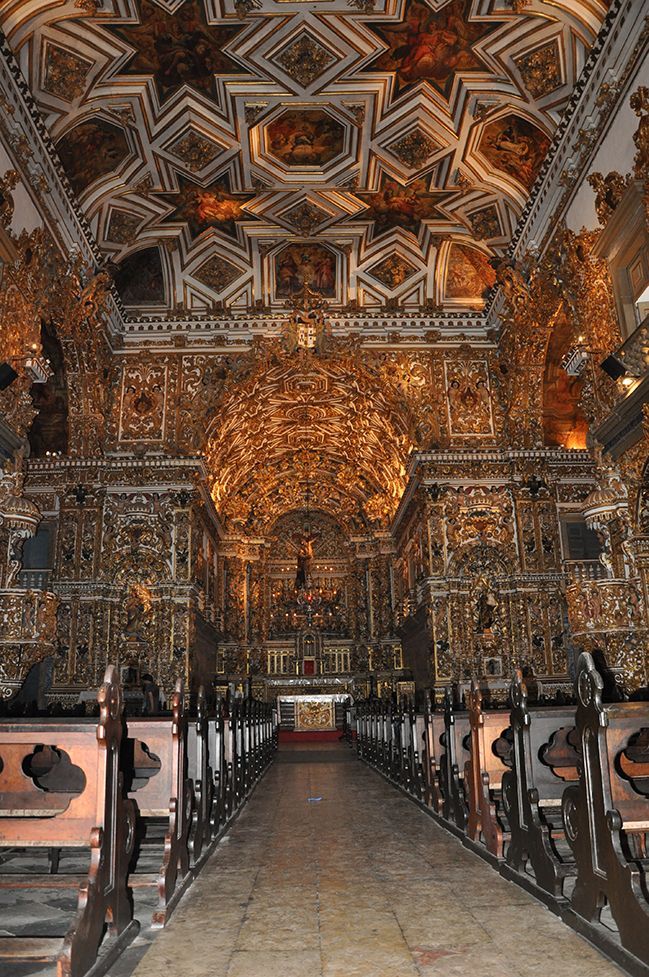
Photo by Mariana Smiley for Unsplash
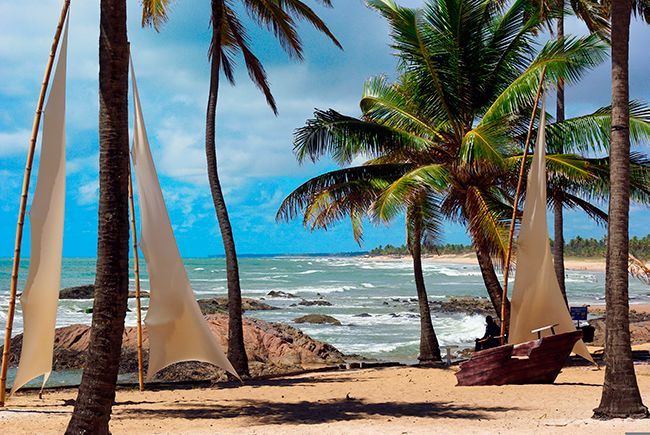
Image by Wikipedia
03 Exciting beaches and tourist attractions
Being a coastal city, Salvador naturally has many beautiful beaches, for example: Jardim de Alah, if you're looking for calm waters and stunning landscapes; Ribeira, known for its rowing competitions and many local festivities; and Porto da Barra, a beach frequented by locals with a calm and soothing atmosphere.
Besides the beach life, the city is home to attractions suitable for all tastes , such as Bahia Marina and Praça Campo Grande, which are filled with events and concerts throughout the year; Cidade da Música da Bahia and Salvador Museum of Modern Arts, for those who would like to learn more about the local artistic creations; and Mercado Modelo, the biggest handmade ornament market.
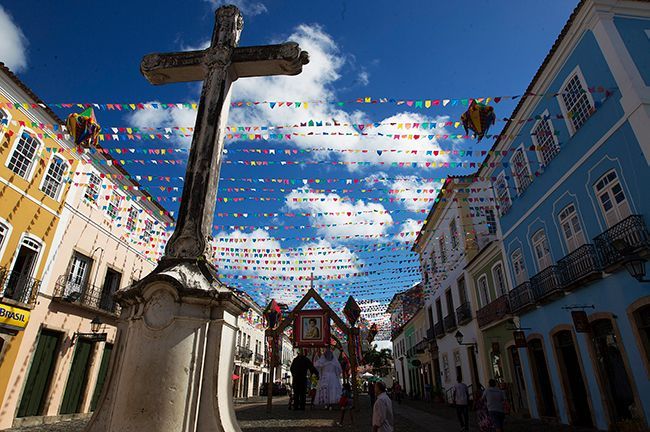
Photo by victtin96 for Pixabay
04 Carnaval and Olodum musical group
Carnaval is the most famous and acclaimed event in Salvador. A holiday of four intense days of partying where people dress in costumes and parade the streets along with trios elétricos — huge sound vehicles — which carry different artists and bands. This festival is so popular that it is considered an accomplishment amongst artists to have their own trio elétrico and parade.
Olodum, a percussion musical group based in Salvador, are one of the main attractions of the local Carnaval. Specializing in grooves with African roots, as well as samba and reggae, they have performed with Ballet Bolshoi, Paul Simon and Michael Jackson, with whom they recorded the
music video for
They Don't Care About Us.
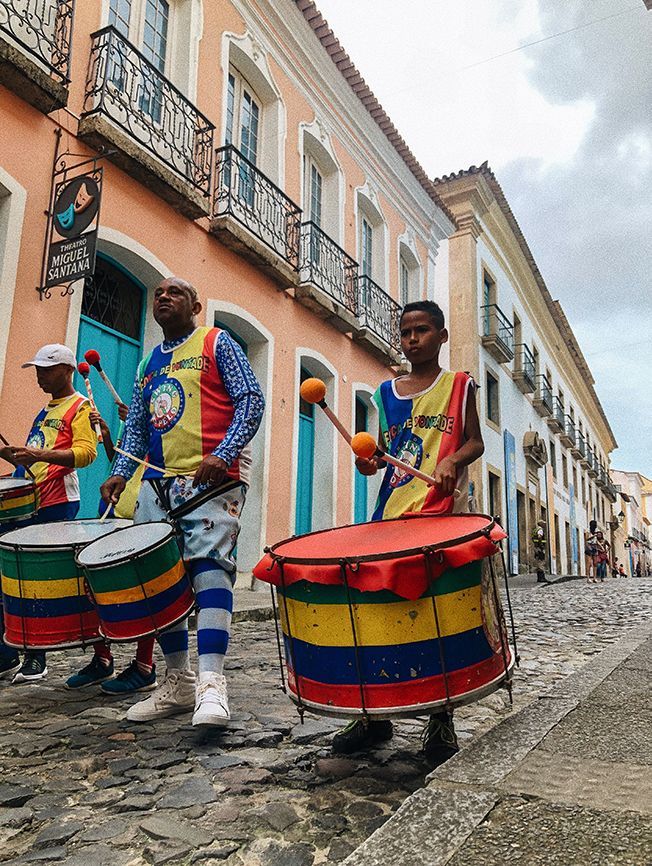
05 Cultural programmes and incentives
After a period of decline due to the pandemic, Salvador's government announced a series of programmes and initiatives to encourage local cultural productions.
Since the announcement in June, four programs have been launched: Prêmio Capoeira Viva, Viva Cultura, Arte Todo Dia and Salvador Cine, of which three have already been finalized and granted.
Key facts about Salvador
Population: 2.9 million inhabitants
Altitude: 8 to 12 m (26 to 39 ft)
State: Bahia
Region: Northeast
Time zone: GMT-3
Climate: Humid Tropical, hot and humid summers and mild and rainy winters
Rainy season/ Winter: March to August
Dry season/ Summer: September to February
Average temperature: 30°C (86ºF) (dry season) and 23°C (73.4ºF) (rainy season)
Did you know?
Three random facts about Salvador:
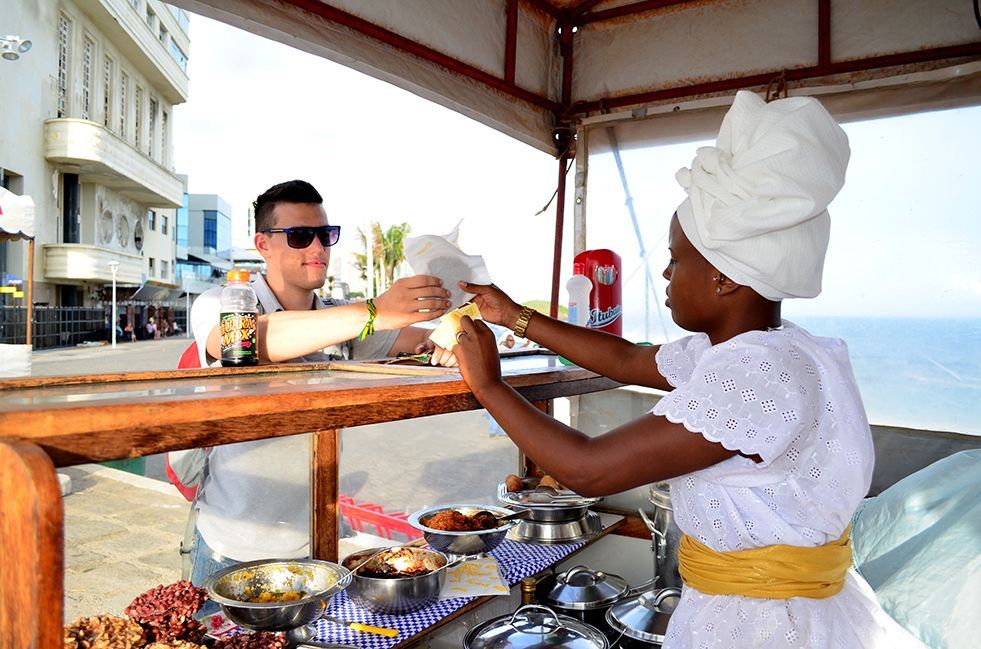
Photo by Tatiana Azeviche for Setur
Local dish holiday
In Salvador, there is a holiday with the sole purpose of celebrating a local dish: the acarajé. This fried bean dough is filled with a spiced shrimp paste (vatapá) and a vinegar and aromatics-based sauce (vinagrete). Acarajé Day is celebrated on November 25.
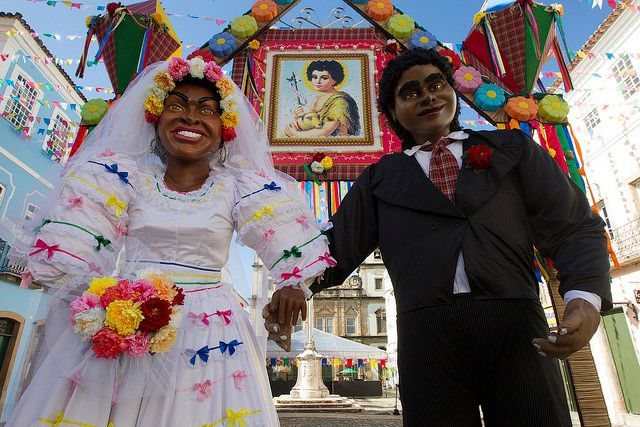
Photo by Eli Corra for Setur
The biggest Carnaval in the world
The Salvador Carnaval won a place in the 2004 Guinness Book of World Records for the world's biggest Carnaval. That year more than 2.5 million people paraded the streets while participating in the festivities.
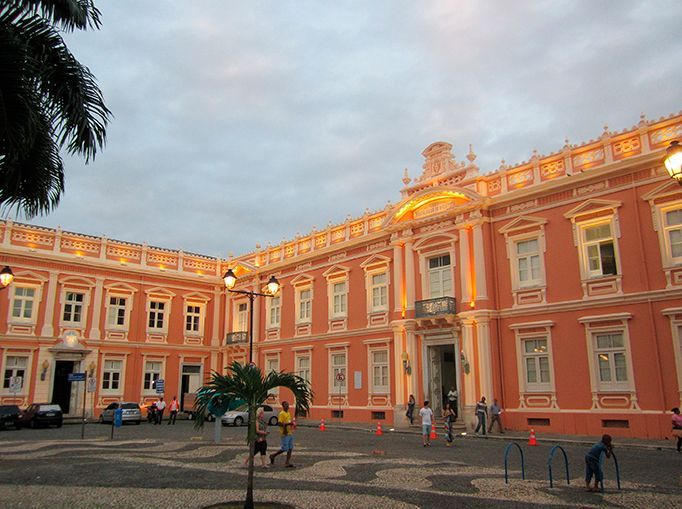
Photo by Abdiel Jr for Flikr
Brazil's first medical school
The Federal University of Bahia, founded in 1808, offered the first medicine course in Brazil, which is still available to this day.
If you're looking for a place with an authentic culture and beautiful historical landmarks, filming in Salvador is a sure bet. Story Productions can help you with all full production services in Brazil, from equipment rental to finding your ideal filming crew.
Get in touch with us for more details.







